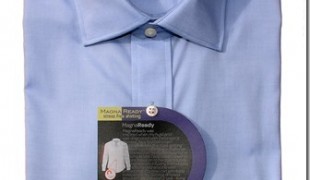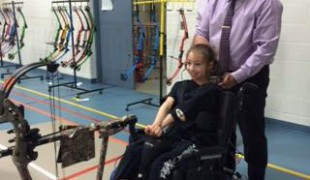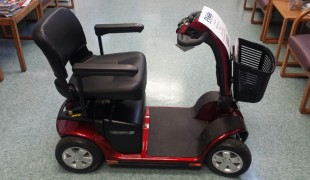- 8958
- 607
- 11
- 14
- 0
- Help Ukraine
About the solution
He described the "eureka moment" which led to him creating the spoon: "I actually remember the day, I was about to get out of my bed and have my breakfast when I thought I need a spoon with a lid on it.
"Eating is a fundamental part of life, you can't survive without eating", Douglas said.
Then Douglas teamed up with Mark Penver, a graduate intern at 4c Design, and they hit upon the idea of designing a spoon that would reduce spillage for those with uncontrollable arm movements.
After testing various designs on people with cerebral palsy, the end result is the S'up Spoon. Designed for left- and right-handed users, it features a deeper cavity than a regular spoon that partially extends into the handle. This allows it to more securely hold loose food and liquids, thereby reducing spillage as the spoon makes its way from plate to mouth. The spoon also has a high arch in the handle to make it easier to pick up from flat surfaces and a concave dip in the top to provide a better grip for improved handling.
"Eating in a restaurant would just be unthinkable before," says Douglas. "This is a major breakthrough. I can eat Chinese with two portions of rice as well as ice-cream totally independently and with very little spillage. It could increase the independence and choice of many people who have unwanted hand or arm movements, including myself."
The team plans to produce the finalized S'up Spoon design in Eastman Tritan copolyester, a BPA-free polycarbonate alternative and have taken to Kickstarter to make this a reality. They also hope to examine the potential of other materials, including steel, in the future. The crowdfunding campaign is looking to raise £33,000 (US$55,000) for tooling costs to get the spoon into mass production, with £18 (US$30) the minimum pledge to reserve a single S'up in black/dark gray. If all goes well, deliveries are estimated to begin in December.
Orders for the spoon have so far come in from America, Australia, Holland and Denmark.
It can also help blind and partially sighted people.
More info: http://sup-spoon.com/
Adapted from: http://www.gizmag.com/sup-spoon/33627/
This solution shall not include mention to the use of drugs, chemicals or biologicals (including food); invasive devices; offensive, commercial or inherently dangerous content. This solution was not medically validated. Proceed with caution! If you have any doubts, please consult with a health professional.
DISCLAIMER: This story was written by someone who is not the author of the solution, therefore please be advised that, although it was written with the utmost respect for the innovation and the innovator, there can be some incorrect statements. If you find any errors please contact the patient Innovation team via info@patient-innovation.com
-
-
785
-
0
-
13947

MagnaReady® - adaptative clothing for people who struggle with fine motor skills
Grip
CAREGIVING
Parkinson's Disease
Body-Worn solutions (Clothing, accessories, shoes, sensors...)
Assistive Daily Life Device (to help ADL)
Tremors
Stiffness or rigidity (difficulty moving)
Trouble with fine motor skills (e.g., writing, buttoning clothes)
Promoting self-management
Managing Neurological Disorders
Promoting inclusivity and social integration
Caregiving Support
Internal Medicine
Neurology
Physical Medicine and Rehabilitation
Rheumatology
United States
-
-
-
634
-
0
-
8504

Father creates gadgets adapted for people with cerebral palsy
MOVING IN A WHEELCHAIR: Moving using a wheelchair.
Playing
Gardening
Social interaction
Cerebral Palsy
Educational/Leisure device (book, toy, game...)
Assistive Daily Life Device (to help ADL)
Muscle cramps or spasms
Difficulty coordinating movements
Trouble with fine motor skills (e.g., writing, buttoning clothes)
Twitching or involuntary movements (myoclonus)
Fatigue
Restoring mobility
Promoting self-management
Managing Neurological Disorders
Promoting inclusivity and social integration
Caregiving Support
Neurology
Pediatrics
Physical Medicine and Rehabilitation
Canada
-
-
-
659
-
0
-
9102

Drive-Master - adaptive mobility equipment
MOVING IN A WHEELCHAIR: Moving using a wheelchair.
WALKING WITH A WALKING AID: Walking with a walking aid
CAREGIVING
Polio
Assistive Daily Life Device (to help ADL)
Walking Aid (wheelchair/walker/crutches)
Muscle cramps or spasms
Difficulty coordinating movements
Stiffness or rigidity (difficulty moving)
Paralysis of the legs and lower body
Muscle weakness
Restoring mobility
Promoting self-management
Managing Neurological Disorders
Promoting inclusivity and social integration
Caregiving Support
Neurology
Physical Medicine and Rehabilitation
Rheumatology
United States
-
 en
en